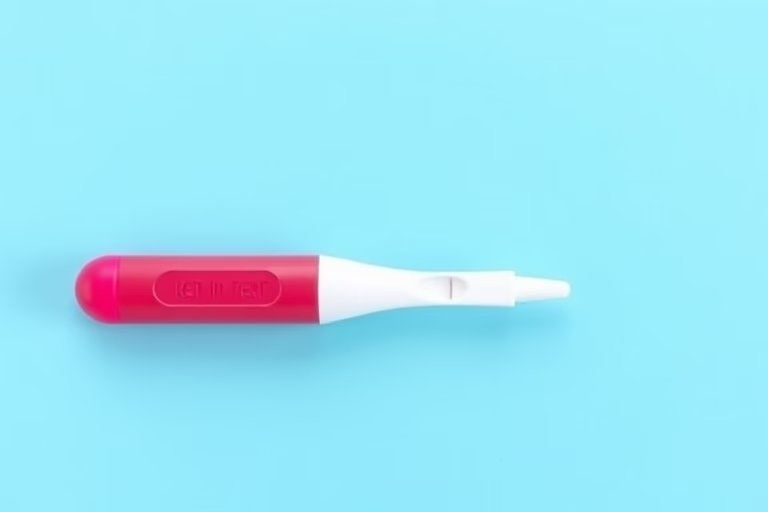Understanding Implantation Bleeding
Implantation bleeding occurs when a fertilized egg attaches itself to the lining of the uterus. This usually happens around 6 to 12 days after conception, leading to light spotting in some women. This type of bleeding is often subtle and can be confused with the beginning of a menstrual cycle. Recognizing the signs of implantation bleeding is essential for those trying to conceive. It can serve as an early indicator of pregnancy, prompting many women to seek answers about testing for pregnancy.
Women may wonder, how many days after implantation bleeding to test for pregnancy? The answer to this question can significantly influence how and when one should take a pregnancy test. Many tests can be sensitive to the pregnancy hormone, known as hCG, which begins to rise after implantation. Knowing the timing and understanding one’s cycle is crucial in determining the best time for testing.
When Does Implantation Bleeding Occur?
Implantation bleeding typically takes place 6 to 12 days post-ovulation and fertilization. It’s crucial to identify exactly when ovulation occurs to better understand when this bleeding might happen. Generally, a menstrual cycle is about 28 days long, with ovulation occurring around the midpoint. Therefore, those tracking their cycles can anticipate when implantation bleeding may occur if conception takes place.
For those trying to conceive, monitoring these cycles becomes vital. Recognizing signs such as heightened basal body temperature and changes in cervical mucus can assist individuals in predicting their fertile window accurately. As each woman’s cycle varies, understanding personal cycles can make a significant difference when determining the best time to test for pregnancy.
Symptoms of Implantation Bleeding
Identifying implantation bleeding symptoms is essential for women who might be pregnant. Symptoms may include:
These symptoms are often mild and not accompanied by the typical signs of menstruation.
Women experiencing these symptoms close to their expected period may wonder if it could be implantation bleeding. Being aware of these differences can help in determining the next steps toward testing for pregnancy.
Timing of Pregnancy Tests
Understanding the timing of pregnancy tests is essential for accurate results. Most home pregnancy tests work by detecting the level of hCG in urine, which rises after implantation. Testing too early can result in a false negative if hCG levels are not yet high enough to be detected. It is generally recommended to wait at least a few days post-implantation bleeding for the best chance of an accurate result.
For optimal accuracy, waiting until after a missed period is advisable. However, individual differences exist, and some may receive positive results sooner. Being aware of personal cycles and timing can help in deciding when to test effectively.
Types of Pregnancy Tests
Various types of pregnancy tests are available, including:
Home tests are the most convenient option for many. They can provide quick results, often within minutes. Blood tests, while more accurate and sensitive, require a visit to the doctor, which may not be as accessible for everyone.
Choosing the right test depends on individual circumstances, including convenience and timing. It’s advisable to follow the manufacturer’s instructions for the most accurate results.
Factors Influencing Test Accuracy
Several factors can influence the accuracy of pregnancy tests. Some of these include:
Testing too early can result in a false negative, as hCG levels may not have risen sufficiently. Additionally, diluted urine from excessive fluid intake can affect sensitivity. Following directions and understanding one’s cycle can help mitigate these issues, ensuring more accurate results.
Next Steps After Testing
Upon receiving the test results, individuals should consider the next steps. If the test is positive, scheduling an appointment with a healthcare provider is highly recommended to confirm the pregnancy and begin prenatal care. It’s essential to maintain a healthy lifestyle during this time, including proper nutrition and regular check-ups.
If the test is negative and menstruation does not occur, it’s advisable to wait a few days before testing again. Hormone levels can take time to rise, and re-testing may provide clarity. Understanding these follow-up actions can greatly benefit those trying to conceive.
Final Thoughts
Understanding how many days after implantation bleeding to test is crucial for those eager to confirm a pregnancy. Implantation bleeding often occurs 6 to 12 days post-conception. Recognizing the signs and timing tests appropriately can improve accuracy in pregnancy confirmation.
It is essential to monitor one’s cycles and symptoms closely. Accurate timing of hCG detection can greatly influence test results, leading to timely decisions about pregnancy management. Women should feel empowered in their journey to understand their bodies and take control of their reproductive health.
In summary, understanding the nuances surrounding implantation bleeding and subsequent testing can substantively enhance the experience for those trying to conceive. With knowledge, women gain the ability to take proactive steps toward their reproductive health goals.
Frequently Asked Questions
1. What is implantation bleeding?
Implantation bleeding is light spotting that occurs when a fertilized egg attaches to the uterine lining, typically between 6 to 12 days after conception.
2. How can I tell if it’s implantation bleeding or my period?
Implantation bleeding is usually lighter in color and flow compared to menstrual bleeding and lasts only a few hours to a few days.
3. When is the best time to take a pregnancy test?
It is advisable to wait at least a couple of days after experiencing implantation bleeding for the most accurate results from a home pregnancy test.
4. Can I get a negative result after implantation bleeding and still be pregnant?
Yes, testing too early may result in a false negative. If menstruation does not occur, wait a few days and test again.
5. What should I do if I receive a positive pregnancy test?
Schedule an appointment with a healthcare provider to confirm the pregnancy and begin prenatal care.
Further Reading
What Type of Psychotherapy Is Best for Anxiety?







